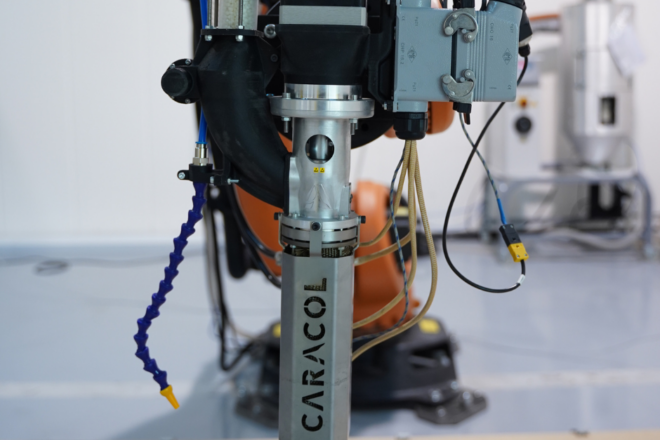Can reclaimed nylon be turned into a furniture line? At ProM Facility yes! Together with the Aquafil Group, the facility’s technologists are experimenting with sustainable, 3D-printed garden furniture.
The research project is a collaboration between Aquafil and the prototyping centre of Polo Meccatronica and involves a PhD co-funded by the company and the University of Salerno.
Aquafil and ECONYL® nylon: innovation and circular economy
The Aquafil group was founded in 1965 and has established itself over time as a reference point in the search for new production models for sustainable development both in Italy and worldwide. The company is engaged in the production of Nylon 6, Nylon 6:6 and Dryarn fibres and polymers, and is renowned for ECONYL® nylon, a product that, thanks to the regeneration process, gives a new life to waste. According to a circular economy perspective, in fact, since 2011 Aquafil has been recovering waste and discarded nylon materials, especially used fishing nets and carpets, and transforming them into new threads.
This process allows the material to be recycled countless times without any reduction in the quality of the polymer and without having to introduce virgin material, as is required instead in the mechanical recycling process.
Collaboration with ProM Facility: a history of research and synergy
Linking Aquafil and Trentino Sviluppo’s mechatronic prototyping centre is Nicole Soligo, at the time a student at the University of Trento, who about a year ago started interacting with the facility for her degree thesis in Materials Engineering. The project focused precisely on the potential of 3D printing combined with ECONYL® regenerated nylon. Having completed her studies, she was hired by Aquafil where she is now in charge of product innovation and material functionalization in the group led by engineer Mauro Buccella.
The idea of restoring the collaboration was triggered by the presence in the laboratory of the innovative Caracol robot that the ProM Facility had equipped itself with in the meantime. This robotic printing cell is capable of creating large objects with composite materials through the FGF – Fused Granulate Fabrication process.
In this specific case, the machine enables the transformation of plastic waste into design products and is a good example of how 3D printing can be useful for companies to close the process of reusing materials.
The ecodesign challenge: 3D-printed furniture
The aim of the current project is to realise, through optimisation of the polymer printing process, a practical, versatile, design-oriented and sustainable furniture line.
Among the focus areas of the initiative are:
- material testing
- process simulation
- identifying the best parameters for the 3D-printing of ECONYL® nylon


